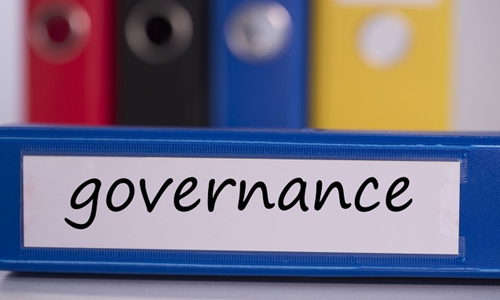Post-pandemic world must close governance loopholes

Photo: IC
Amid the dire pandemic of the COVID-19, people are becoming more concerned about the upheaval the world is undergoing. The pandemic will impact all countries' governance in the future as much as it has done to the world's.How the world adapts depends on the breadth of changes in different countries, depends on the collective rise and fall of big countries and small and medium-sized countries, and depends on the adjustments these countries will have to make.
Our world consists of over 200 countries and regions, and each has its own governance pattern. The pandemic has proven that the world is generally weak in dealing with unconventional security threats, especially public health emergencies.
The problems brought about by the pandemic are both global and local. They are related to the close connections forged during the globalization era and the varied systems of governance in different countries.
When the pandemic is over, all countries should reflect on globalization and work to improve their own governance systems and close the loopholes.
Some Western scholars are fond of comparing different political systems, and the pandemic has given them the opportunity to make better observations.
The methods a country uses in coronavirus prevention and control depend on its own system. It will be important for observers to consider whether a system can adjust from the lessons learned, and improve its capability in handling similar emergencies in the future.
The flexibility, effectiveness and continuity of a system to some extent depend on its ability to correct errors. Take the US financial system, which has a 100-year history. It has experienced many crises, and after each crisis the regulatory mechanism was improved. This dynamic process has not yet ended.
In recent years, the US has been in decline, partly because its resilience has been undermined. The main political purpose of the two US parties has become finding ways of attacking one another, rather than reaching a consensus on how to tackle problems. Their fierce competition and confrontations have impaired the traditional decision-making balance.
The current analysis of a post-COVID-19 future by US media outlets and academia suggests the US will improve its public crisis response mechanisms, but the country's ability to enact effective measures remains to be seen.
China will enhance its governance as well. In the midst of the pandemic, China has launched its accountability mechanisms. It is certain that after the epidemic, China will give priority to promoting its public crisis response mechanism and increasing its flexibility and effectiveness.
There isn't a universal governance system that can address all problems. The formation and functioning of a governance system is not something that can be easily altered, but a crisis like the novel coronavirus outbreak usually provides an opportunity for reform.
With the acceleration of modernization and the rise of people's expectations, governance has become increasingly difficult, and sticking to convention is no longer effective. There is a broad consensus around the world that a country's governance system and capability must be improved.
In terms of governance, Singaporean academic Kishore Mahbubani said, "To state the obvious, there is no point having the best processes in place if the results are bad. At the end of the day, the people want to know if they are better off." Only by turning reform into an internal driving force of a system and ensuring that reform is always underway can governance advance with the times and meet the needs of the people to the greatest extent.
Amid the COVID-19 pandemic, all countries have to withstand the blow and get through the challenge as soon as possible. In the future, how to promote their governance system and enhance operation will be their priority. Where globalization heads depends on such resilience.
The author is a senior editor with People's Daily, and currently a senior fellow with the Chongyang Institute for Financial Studies at Renmin University of China. dinggang@globaltimes.com.cn. Follow him on Twitter @dinggangchina


